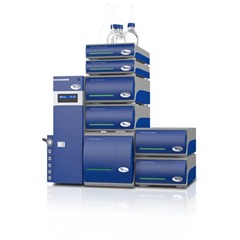Postnova Analytics reports on the recent investment by the Department of Chemistry at University College London (UCL) in an AF2000 Field Flow Fractionation System to assist them in their development of novel nanoscale vehicles for drug delivery.

UCL has pioneered the engineering of novel nanoscale drug delivery vehicles which can be tuned to release a range of cargos. The drug delivery system is based upon the synthesis of self-assembled spherical polymer vesicles known as polymersomes. Polymersomes are biocompatible and stable making them ideal for the development of drug delivery systems.
Paul Clarke, Managing Director of Postnova Analytics (UK) Ltd. said "Researchers at UCL purchased the Postnova AF2000 system to work on the purification and characterisation of polymersomes being synthesised for the treatment of several diseases including cancer, infections and neurological disorders.
The project is part of a multidisciplinary effort aimed toward the design of personalised nanomedicines. We are delighted to provide UCL with an analytical tool that will assist them in their ground breaking work".
Having identified Field Flow Fractionation as the best technique to purify and characterise polymersomes we elected to purchase an AF2000 system from Postnova as it allows us to quantify the materials both in terms of size as well as shape. Such an effort is critical to both elucidate important structure/function relation as well as to expedite the necessary quality control associated with clinical translation."
Guiseppe Battaglia, Professor of Molecular Bionics, Chemistry Department, UCL
The Postnova AF2000 is a high performance Field Flow Fractionation (FFF) platform for separation of proteins, macromolecules and nanoparticles. Modular in design, the AF2000 incorporates the combined experience, expertise and technological advances from Postnova Analytics' nearly two decades of leadership in FFF.
Incorporating a range of FFF modules in a single integrated system to provide universal separation, the AF2000 offers more flexibility, better performance and more robust results than any system before.